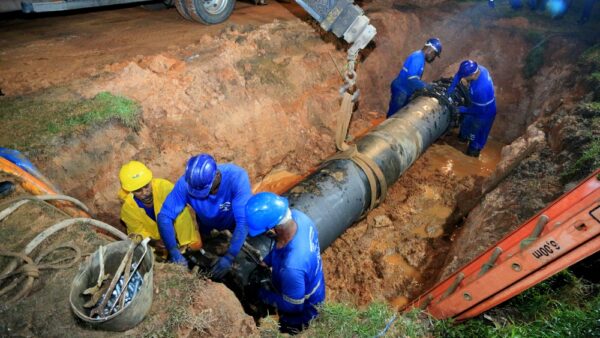Electoral Court President Alexandre de Moraes on Thursday announced that the traditional integrity test voting machines undergo every election cycle will have a new feature this year: the use of biometric data of real voters. The security check will also be expanded to comprise more machines.
Integrity tests have been carried out every Election Day since 2002. Some 100 voting machines are sampled out of roughly 500,000 distributed nationwide.
Representatives of political parties write votes for certain candidates on paper ballots in advance and deposit them in an old-fashioned ballot box. Later, electoral workers draw votes from the box and type them into the electronic voting machine. The process is public and filmed. The votes in the integrity test do not count for the real election.
Biometrics have been gradually adopted in Brazilian elections since 2008. In 2018, over 3.6 million Brazilians had their voter registration canceled because they failed to register their biometrics before a deadline.
However, new biometric registrations were suspended in 2020 due to the pandemic, and the registration is not itself a requirement to vote.
Justice Moraes announced today that the integrity test will be expanded this year from 100 to 641 voting machines. In addition, 56 of those machines will be activated by the biometrics of real voters, like regular voting machines.
Voters that choose to participate in the new test will not vote twice — the integrity test will still be carried out by electoral justice workers.
Adding the biometrics check to the integrity test was a request of Defense Minister Paulo Sérgio Nogueira.
The military has no constitutional role in advising about the elections, but the Armed Forces have echoed President Jair Bolsonaro’s challenges around the security of Brazil’s electronic voting system and pushed for a larger role in this year’s election.
Mr. Nogueira, a retired Army general, told senators in July that the Armed Forces will “go until the end” on what he called a “mission” to improve the transparency and safety of the coming election.
President Bolsonaro has said on multiple occasions that he would only accept results he deems as legitimate — and last weekend said “there’s no way [he] won’t win in the first round with at least 60 percent of the vote.” Polls suggest he has just over half of that.


 Search
Search






































